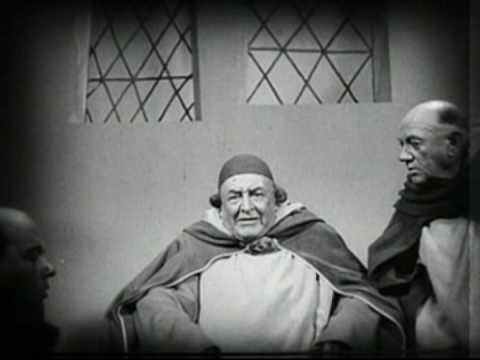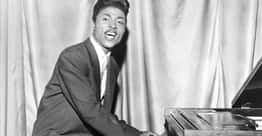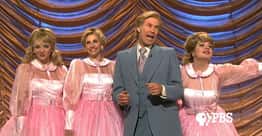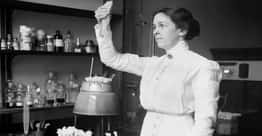The 125+ Best Movies of 1928
Ranked By
1.7K votes
64 voters
1 reranks
 1Buster Keaton, Marceline Day, Harold GoodwinIn this silent classic, photographer Buster (Buster Keaton) meets Sally (Marceline Day), who works as a secretary for the newsreel department at MGM, and falls hard. Trying to win her attention, Buster abandons photography in order to become a news cameraman. In spite of his early failures with a motion camera, Sally takes to him as well. However, veteran cameraman Stagg (Harold Goodwin) also fancies Sally, meaning Buster will need to learn how to film quickly before he loses his job.
1Buster Keaton, Marceline Day, Harold GoodwinIn this silent classic, photographer Buster (Buster Keaton) meets Sally (Marceline Day), who works as a secretary for the newsreel department at MGM, and falls hard. Trying to win her attention, Buster abandons photography in order to become a news cameraman. In spite of his early failures with a motion camera, Sally takes to him as well. However, veteran cameraman Stagg (Harold Goodwin) also fancies Sally, meaning Buster will need to learn how to film quickly before he loses his job. 2Maria Falconetti, Eugene Silvain, André BerleyA classic of the silent age, this film tells the story of the doomed but ultimately canonized 15th-century teenage warrior. On trial for claiming she'd spoken to God, Jeanne d'Arc (Renee Falconetti) is subjected to inhumane treatment and scare tactics at the hands of church court officials (Eugene Silvain, Jean d'Yd). Initially bullied into changing her story, Jeanne eventually opts for what she sees as the truth. Her punishment, a famously brutal execution, earns her perpetual martyrdom.
2Maria Falconetti, Eugene Silvain, André BerleyA classic of the silent age, this film tells the story of the doomed but ultimately canonized 15th-century teenage warrior. On trial for claiming she'd spoken to God, Jeanne d'Arc (Renee Falconetti) is subjected to inhumane treatment and scare tactics at the hands of church court officials (Eugene Silvain, Jean d'Yd). Initially bullied into changing her story, Jeanne eventually opts for what she sees as the truth. Her punishment, a famously brutal execution, earns her perpetual martyrdom.- #329 of 675 onThe Best Movies Roger Ebert Gave Four Stars
- #37 of 97 onThe Best French Movies That Are Absolute Masterpieces
- #47 of 425 onThe Greatest Movies in World Cinema History
 3Charlie Chaplin, Merna Kennedy, Al Ernest GarciaWrongfully accused of criminal acts, a tramp (Charlie Chaplin) unwittingly ducks into a big top, where his bumbling attempts to avoid pursuing police officers earn the laughter and applause of the circus-goers. Impressed, the ringmaster (Allan Garcia) decides to employ the tramp as an entertainer. In between getting trapped in a lion's cage and partaking in clumsy high wire escapades, he falls for a beautiful show rider (Merna Kennedy), who unfortunately has eyes for a daring tightrope acrobat.More The Circus
3Charlie Chaplin, Merna Kennedy, Al Ernest GarciaWrongfully accused of criminal acts, a tramp (Charlie Chaplin) unwittingly ducks into a big top, where his bumbling attempts to avoid pursuing police officers earn the laughter and applause of the circus-goers. Impressed, the ringmaster (Allan Garcia) decides to employ the tramp as an entertainer. In between getting trapped in a lion's cage and partaking in clumsy high wire escapades, he falls for a beautiful show rider (Merna Kennedy), who unfortunately has eyes for a daring tightrope acrobat.More The Circus- #5 of 86 onThe Best Silent Movies of All Time
- #190 of 695 onThe All-Time Greatest Comedy Films
- #521 of 675 onThe Best Movies Roger Ebert Gave Four Stars
 4
4Steamboat Bill Jr.
Buster Keaton, Ernest Torrence, Marion ByronIn this silent comedy, college boy William Canfield Jr. (Buster Keaton) reunites with his boat captain father in a Mississippi River town. Though he's flummoxed by Willie's citified appearance, the elder Canfield seems to have found an ally to help him compete with fellow riverboat owner John James King (Tom McGuire). Willie finds himself falling for King's daughter, Mary (Marion Byron), but he has more pressing concerns when the weather turns bad and his father in arrested.More Steamboat Bill Jr. 5Joan Crawford, Johnny Mack Brown, Dorothy SebastianIn the midst of the Jazz Age, two friends wrestle with love and liberation. Diana (Joan Crawford) has a flamboyant personality that masks a sweet nature, while Ann (Anita Page) is outwardly reserved, but coldly manipulative on the inside. When Diana sets her sights on the rich, debonair Ben (Johnny Mack Brown), Ann gets competitive, and successfully steals Ben away from her. It's only after they've married that Ben realizes what a cruel person Ann is, and that his heart really belongs to Diana.
5Joan Crawford, Johnny Mack Brown, Dorothy SebastianIn the midst of the Jazz Age, two friends wrestle with love and liberation. Diana (Joan Crawford) has a flamboyant personality that masks a sweet nature, while Ann (Anita Page) is outwardly reserved, but coldly manipulative on the inside. When Diana sets her sights on the rich, debonair Ben (Johnny Mack Brown), Ann gets competitive, and successfully steals Ben away from her. It's only after they've married that Ben realizes what a cruel person Ann is, and that his heart really belongs to Diana. 6Conrad Veidt, Stuart Holmes, Mary PhilbinThe Man Who Laughs is a 1928 American silent film directed by the German Expressionist filmmaker Paul Leni. The film is an adaptation of Victor Hugo's novel of the same name and stars Mary Philbin as the blind Dea and Conrad Veidt as Gwynplaine. The film is known for the grim carnival freak-like grin on the character Gwynplaine's face, which often leads it to be classified as a horror film. Film critic Roger Ebert stated, "The Man Who Laughs is a melodrama, at times even a swashbuckler, but so steeped in Expressionist gloom that it plays like a horror film." The Man Who Laughs is a Romantic melodrama, similar to films such as The Hunchback of Notre Dame. The film was one of the early Universal Pictures productions that made the transition from silent films to sound films, using the Movietone sound system introduced by William Fox. The film was completed in April 1927 but was held for release in April 1928, with sound effects and a music score that included the song, "When Love Comes Stealing," by Walter Hirsch, Lew Pollack, and Erno Rapee.
6Conrad Veidt, Stuart Holmes, Mary PhilbinThe Man Who Laughs is a 1928 American silent film directed by the German Expressionist filmmaker Paul Leni. The film is an adaptation of Victor Hugo's novel of the same name and stars Mary Philbin as the blind Dea and Conrad Veidt as Gwynplaine. The film is known for the grim carnival freak-like grin on the character Gwynplaine's face, which often leads it to be classified as a horror film. Film critic Roger Ebert stated, "The Man Who Laughs is a melodrama, at times even a swashbuckler, but so steeped in Expressionist gloom that it plays like a horror film." The Man Who Laughs is a Romantic melodrama, similar to films such as The Hunchback of Notre Dame. The film was one of the early Universal Pictures productions that made the transition from silent films to sound films, using the Movietone sound system introduced by William Fox. The film was completed in April 1927 but was held for release in April 1928, with sound effects and a music score that included the song, "When Love Comes Stealing," by Walter Hirsch, Lew Pollack, and Erno Rapee. 7Lillian Gish, Montagu Love, Edward EarleThe Wind is a 1928 American silent romantic drama film directed by Victor Sjöström. The movie was adapted by Frances Marion from the novel of the same name written by Dorothy Scarborough. It features Lillian Gish, Lars Hanson and Montagu Love. It was one of the last silent films released by Metro-Goldwyn-Mayer.
7Lillian Gish, Montagu Love, Edward EarleThe Wind is a 1928 American silent romantic drama film directed by Victor Sjöström. The movie was adapted by Frances Marion from the novel of the same name written by Dorothy Scarborough. It features Lillian Gish, Lars Hanson and Montagu Love. It was one of the last silent films released by Metro-Goldwyn-Mayer. 8Stan Laurel, Oliver Hardy, Sam LufkinThe Finishing Touch is a 1928 short comedy silent film produced by Hal Roach, directed by Clyde Bruckman and starring Laurel and Hardy. It was shot in November and December 1927 and released February 25, 1928 by Metro-Goldwyn-Mayer.
8Stan Laurel, Oliver Hardy, Sam LufkinThe Finishing Touch is a 1928 short comedy silent film produced by Hal Roach, directed by Clyde Bruckman and starring Laurel and Hardy. It was shot in November and December 1927 and released February 25, 1928 by Metro-Goldwyn-Mayer. 9John Wayne, George Meeker, Earle FoxFour Sons is a 1928 silent drama film directed and produced by John Ford and written for the screen by Philip Klein from a story by I. A. R. Wylie first published in the Saturday Evening Post as Grandmother Bernle Learns Her Letters. It is one of only a handful of survivors out of the more than fifty silent films that Ford directed between 1917 and 1928. It starred Margaret Mann, James Hall, and Charles Morton. The film is also notable for the presence of the young John Wayne in an uncredited role as an Officer. Though "silent," it was released with a Movietone music and sound effects track. It was remade in 1940 with Don Ameche and Eugenie Leontovich, directed by Archie Mayo, although the time frame was moved up to World War II.
9John Wayne, George Meeker, Earle FoxFour Sons is a 1928 silent drama film directed and produced by John Ford and written for the screen by Philip Klein from a story by I. A. R. Wylie first published in the Saturday Evening Post as Grandmother Bernle Learns Her Letters. It is one of only a handful of survivors out of the more than fifty silent films that Ford directed between 1917 and 1928. It starred Margaret Mann, James Hall, and Charles Morton. The film is also notable for the presence of the young John Wayne in an uncredited role as an Officer. Though "silent," it was released with a Movietone music and sound effects track. It was remade in 1940 with Don Ameche and Eugenie Leontovich, directed by Archie Mayo, although the time frame was moved up to World War II. 10Walt DisneySteamboat Willie is a 1928 American animated short film directed by Walt Disney and Ub Iwerks. It was produced in black-and-white by Walt Disney Studios and was released by Celebrity Productions. The cartoon is considered the debut of Mickey Mouse and his girlfriend Minnie, despite both the characters appearing several months earlier in a test screening of Plane Crazy. Steamboat Willie was the third of Mickey's films to be produced, but was the first to be distributed because Walt Disney had, having seen the Jazz Singer, committed himself to producing the first fully synchronized sound cartoon. The film is especially notable for being the first cartoon with synchronized sound, including character sounds and a musical score. Disney understood from early on that synchronized sound was the future of film. Steamboat Willie was the first cartoon to feature a fully post-produced soundtrack which distinguished it from earlier sound cartoons such as Inkwell Studios' Song Car-Tunes and Van Beuren Studios' Dinner Time. Steamboat Willie would become the most popular cartoon of its day.
10Walt DisneySteamboat Willie is a 1928 American animated short film directed by Walt Disney and Ub Iwerks. It was produced in black-and-white by Walt Disney Studios and was released by Celebrity Productions. The cartoon is considered the debut of Mickey Mouse and his girlfriend Minnie, despite both the characters appearing several months earlier in a test screening of Plane Crazy. Steamboat Willie was the third of Mickey's films to be produced, but was the first to be distributed because Walt Disney had, having seen the Jazz Singer, committed himself to producing the first fully synchronized sound cartoon. The film is especially notable for being the first cartoon with synchronized sound, including character sounds and a musical score. Disney understood from early on that synchronized sound was the future of film. Steamboat Willie was the first cartoon to feature a fully post-produced soundtrack which distinguished it from earlier sound cartoons such as Inkwell Studios' Song Car-Tunes and Van Beuren Studios' Dinner Time. Steamboat Willie would become the most popular cartoon of its day. 11Eleanor Boardman, James Murray, Bert RoachYoung John Sims (James Murray) weathers the death of his father and travels to New York City in search of success. Instead, he becomes a low-level worker in an enormous office of a nameless corporation. After he meets a beautiful young woman (Eleanor Boardman), things seem to be looking up, but before long the newlyweds are sullen and bickering, and the arrival of their children leaves John feeling trapped in a dead-end existence. Then tragedy strikes, causing him to reassess his life.
11Eleanor Boardman, James Murray, Bert RoachYoung John Sims (James Murray) weathers the death of his father and travels to New York City in search of success. Instead, he becomes a low-level worker in an enormous office of a nameless corporation. After he meets a beautiful young woman (Eleanor Boardman), things seem to be looking up, but before long the newlyweds are sullen and bickering, and the arrival of their children leaves John feeling trapped in a dead-end existence. Then tragedy strikes, causing him to reassess his life. 12Mickey Rooney, Anne Jackson, Allen GarfieldAging clown Jack Thum (Mickey Rooney) and his loyal and loving wife, Shirlee (Anne Jackson), have dedicated themselves to helping others, taking in dozens of homeless children and raising them as their own. Now on his deathbed and under the care of Dr. Abrahms (Allen Goorwitz), Jack is visited in the hospital by the now-grown children that he cared for as a father figure during the course of his life, each offering fond memories of life with Jack. This film is based on a true story.
12Mickey Rooney, Anne Jackson, Allen GarfieldAging clown Jack Thum (Mickey Rooney) and his loyal and loving wife, Shirlee (Anne Jackson), have dedicated themselves to helping others, taking in dozens of homeless children and raising them as their own. Now on his deathbed and under the care of Dr. Abrahms (Allen Goorwitz), Jack is visited in the hospital by the now-grown children that he cared for as a father figure during the course of his life, each offering fond memories of life with Jack. This film is based on a true story. 13Stan Laurel, Oliver Hardy, Lyle TayoTheir Purple Moment is a 1928 short comedy silent film starring Laurel and Hardy.
13Stan Laurel, Oliver Hardy, Lyle TayoTheir Purple Moment is a 1928 short comedy silent film starring Laurel and Hardy. 14Stan Laurel, Oliver Hardy, Sam LufkinTwo Tars is a Laurel and Hardy short film, directed by James Parrott and released in 1928. A silent film, it largely consists of a 'reciprocal destruction' involving motorists in a traffic jam, which has much inventive mayhem with the destruction of various automobiles.
14Stan Laurel, Oliver Hardy, Sam LufkinTwo Tars is a Laurel and Hardy short film, directed by James Parrott and released in 1928. A silent film, it largely consists of a 'reciprocal destruction' involving motorists in a traffic jam, which has much inventive mayhem with the destruction of various automobiles. 15Emil Jannings, Evelyn Brent, William PowellTsarist general Sergius Alexander (Emil Jannings) is basking in the glory of imperial Russia. After sending the revolutionary Lev Andreyev (William Powell) to prison, he starts romancing Andreyev's girl. But when the Bolsheviks seize power, the tide turns for Alexander, and he flees Russia. Years later, Alexander, broke and working as a bit player in Hollywood, bumps into Andreyev, who is now a director. Andreyev casts his old nemesis as a Russian general, intending to humiliate him on set.
15Emil Jannings, Evelyn Brent, William PowellTsarist general Sergius Alexander (Emil Jannings) is basking in the glory of imperial Russia. After sending the revolutionary Lev Andreyev (William Powell) to prison, he starts romancing Andreyev's girl. But when the Bolsheviks seize power, the tide turns for Alexander, and he flees Russia. Years later, Alexander, broke and working as a bit player in Hollywood, bumps into Andreyev, who is now a director. Andreyev casts his old nemesis as a Russian general, intending to humiliate him on set. 16John Wayne, Dolores Costello, George O'BrienNoah's Ark is a 1928 American early romantic melodramatic disaster film directed by Michael Curtiz. The story was by Darryl F. Zanuck. The film starred Dolores Costello and George O'Brien. Released by Warner Bros. studio, the film was representative of the transition from silent movies to "talkies", although it was essentially a kind of film known as a part-talkie, utilizing new Vitaphone sound-on-disc technology. Some scenes are silent, in particular the biblical ones, while others have sound. During the filming of the climactic flood scene, the great volume of water used was so overwhelming that three extras drowned, one was so badly injured that his leg needed to be amputated, and a number suffered broken limbs and other serious injuries, which led to implementation of stunt safety regulations the following year. Dolores Costello caught a severe case of pneumonia. 35 ambulances attended the wounded. John Wayne and Andy Devine were among the hundreds of extras in the flood scene. Wayne also worked in the prop department for the film.
16John Wayne, Dolores Costello, George O'BrienNoah's Ark is a 1928 American early romantic melodramatic disaster film directed by Michael Curtiz. The story was by Darryl F. Zanuck. The film starred Dolores Costello and George O'Brien. Released by Warner Bros. studio, the film was representative of the transition from silent movies to "talkies", although it was essentially a kind of film known as a part-talkie, utilizing new Vitaphone sound-on-disc technology. Some scenes are silent, in particular the biblical ones, while others have sound. During the filming of the climactic flood scene, the great volume of water used was so overwhelming that three extras drowned, one was so badly injured that his leg needed to be amputated, and a number suffered broken limbs and other serious injuries, which led to implementation of stunt safety regulations the following year. Dolores Costello caught a severe case of pneumonia. 35 ambulances attended the wounded. John Wayne and Andy Devine were among the hundreds of extras in the flood scene. Wayne also worked in the prop department for the film. 17Erich von Stroheim, Fay Wray, ZaSu PittsAgainst the backdrop of Vienna's hidebound caste system, aristocrat and army officer Nicki (Erich von Stroheim) falls for lowly commoner Mitzi (Fay Wray), knowing that it cannot last. Acquiescing to pressure from his family, he ultimately gives her up to marry the more socially acceptable -- albeit crippled -- heiress Cecelia (ZaSu Pitts). Mitzi, for her part, is heartbroken and must resign herself to marrying a churlish butcher, Schani Eberle (Matthew Betz).More The Wedding March
17Erich von Stroheim, Fay Wray, ZaSu PittsAgainst the backdrop of Vienna's hidebound caste system, aristocrat and army officer Nicki (Erich von Stroheim) falls for lowly commoner Mitzi (Fay Wray), knowing that it cannot last. Acquiescing to pressure from his family, he ultimately gives her up to marry the more socially acceptable -- albeit crippled -- heiress Cecelia (ZaSu Pitts). Mitzi, for her part, is heartbroken and must resign herself to marrying a churlish butcher, Schani Eberle (Matthew Betz).More The Wedding March- #80 of 86 onThe Best Silent Movies of All Time
- #15 of 46 onEarly Technicolor Films
- #208 of 216 onThe Best Movies by Paramount Pictures
 18Lon Chaney, Lionel Barrymore, Mary NolanWhen magician Phroso's (Lon Chaney) beloved wife, Anna (Jacqueline Gadsden), leaves him for ivory merchant Crane (Lionel Barrymore), the two men fight and Phroso is left paralyzed from the waist down. After Anna's sudden death, Phroso takes revenge on Crane by spiriting Anna's baby away to Africa, where he rears her in a brothel and keeps her enslaved with drugs. But when Crane and Phroso -- now known as "Dead-Legs" Flint -- meet again after 18 years, Crane delivers some shocking news.
18Lon Chaney, Lionel Barrymore, Mary NolanWhen magician Phroso's (Lon Chaney) beloved wife, Anna (Jacqueline Gadsden), leaves him for ivory merchant Crane (Lionel Barrymore), the two men fight and Phroso is left paralyzed from the waist down. After Anna's sudden death, Phroso takes revenge on Crane by spiriting Anna's baby away to Africa, where he rears her in a brothel and keeps her enslaved with drugs. But when Crane and Phroso -- now known as "Dead-Legs" Flint -- meet again after 18 years, Crane delivers some shocking news. 19Janet Gaynor, Charles Farrell, Henry ArmettaStreet Angel is a 1928 silent film, directed by Frank Borzage, was adapted by H.H. Caldwell, Katherine Hilliker, Philip Klein, Marion Orth and Henry Roberts Symonds from the play Lady Cristilinda by Monckton Hoffe. Street Angel was one of three movies for which Janet Gaynor received an Academy Award for Best Actress in 1929; the others were F. W. Murnau's Sunrise and Borzage's 7th Heaven. Street Angel was also nominated for Best Art Direction and Best Cinematography. The acting award was given in 1929 and the other two in 1930, which accords the movie the distinction of being the only film to ever receive an Oscar nomination in two different years that was not a foreign language film.
19Janet Gaynor, Charles Farrell, Henry ArmettaStreet Angel is a 1928 silent film, directed by Frank Borzage, was adapted by H.H. Caldwell, Katherine Hilliker, Philip Klein, Marion Orth and Henry Roberts Symonds from the play Lady Cristilinda by Monckton Hoffe. Street Angel was one of three movies for which Janet Gaynor received an Academy Award for Best Actress in 1929; the others were F. W. Murnau's Sunrise and Borzage's 7th Heaven. Street Angel was also nominated for Best Art Direction and Best Cinematography. The acting award was given in 1929 and the other two in 1930, which accords the movie the distinction of being the only film to ever receive an Oscar nomination in two different years that was not a foreign language film. 20Gary Cooper, Fay WrayThe Legion of the Condemned is a 1928 American silent film directed by William A. Wellman and starring Fay Wray and Gary Cooper. Written by John Monk Saunders and Jean de Limur, with intertitles by George Marion, Jr., the film is about four young men from various walks of life who sign up for the Lafayette Escadrille, known as "The Legion of the Condemned". The film was produced by Jesse L. Lasky, Wellman, and Adolph Zukor. The film was distributed by Paramount Pictures.
20Gary Cooper, Fay WrayThe Legion of the Condemned is a 1928 American silent film directed by William A. Wellman and starring Fay Wray and Gary Cooper. Written by John Monk Saunders and Jean de Limur, with intertitles by George Marion, Jr., the film is about four young men from various walks of life who sign up for the Lafayette Escadrille, known as "The Legion of the Condemned". The film was produced by Jesse L. Lasky, Wellman, and Adolph Zukor. The film was distributed by Paramount Pictures. 21Lon Chaney, Bernard Siegel, Loretta YoungA clown named Tito Beppi (Lon Chaney) adopts orphaned Simonetta (Loretta Young), and they begin to travel and perform in the circus together. As Simonetta grows into a beautiful young woman, Tito eventually falls in love with her. Though the girl actually has eyes for the young and noble Count Ravelli (Nils Asther), she pretends to want the kindly clown because she is unwilling to break his heart. When Tito realizes that he stands in the way of her happiness, things turn tragic.
21Lon Chaney, Bernard Siegel, Loretta YoungA clown named Tito Beppi (Lon Chaney) adopts orphaned Simonetta (Loretta Young), and they begin to travel and perform in the circus together. As Simonetta grows into a beautiful young woman, Tito eventually falls in love with her. Though the girl actually has eyes for the young and noble Count Ravelli (Nils Asther), she pretends to want the kindly clown because she is unwilling to break his heart. When Tito realizes that he stands in the way of her happiness, things turn tragic. 22Bessie Love, Johnny Walker, Ernest HilliardTheater icon Don Wilson (Johnny Walker) is so tired of being adored by his fellow New Yorkers that he decides to pack his bags for a relaxing stay in the country. When Don learns that local belle Ginger Bolivar (Bessie Love) is part of a rural company of actors, he decides to join the troupe to woo her. The ensemble then puts on an earnest but very unprofessional drama, and Don's manager plays it on Broadway for laughs. The naive Ginger is devastated, and Don must think of a way to win her back.
22Bessie Love, Johnny Walker, Ernest HilliardTheater icon Don Wilson (Johnny Walker) is so tired of being adored by his fellow New Yorkers that he decides to pack his bags for a relaxing stay in the country. When Don learns that local belle Ginger Bolivar (Bessie Love) is part of a rural company of actors, he decides to join the troupe to woo her. The ensemble then puts on an earnest but very unprofessional drama, and Don's manager plays it on Broadway for laughs. The naive Ginger is devastated, and Don must think of a way to win her back. 23Joan Crawford, Tim McCoy, Rex LeaseThe Law of the Range is a 1928 American silent Western film starring Tim McCoy and Joan Crawford and Rex Lease.
23Joan Crawford, Tim McCoy, Rex LeaseThe Law of the Range is a 1928 American silent Western film starring Tim McCoy and Joan Crawford and Rex Lease. 24Stan Laurel, Oliver Hardy, Dorothy CoburnFlying Elephants is a two-reel silent film from 1928. It stars Stan Laurel and Oliver Hardy—before they became the popular team of Laurel and Hardy—as cavemen. The title refers to three animated pachyderms provided by Walter Lantz that fly past in one scene.
24Stan Laurel, Oliver Hardy, Dorothy CoburnFlying Elephants is a two-reel silent film from 1928. It stars Stan Laurel and Oliver Hardy—before they became the popular team of Laurel and Hardy—as cavemen. The title refers to three animated pachyderms provided by Walter Lantz that fly past in one scene. 25Joan Crawford, Nils Asther, Warner OlandDream of Love was a 1928 American silent biographical drama film directed by Fred Niblo, and starring Joan Crawford and Nils Asther. The film is based on the 1849 French tragedy Adrienne Lecouvreur by Eugène Scribe and Ernest Legouvé. In the film, Asther plays Prince Maurice de Saxe and Crawford plays Adrienne Lecouvreur, a Gypsy performer, in a tale of lost love and revenge. Dream of Love is now considered lost.
25Joan Crawford, Nils Asther, Warner OlandDream of Love was a 1928 American silent biographical drama film directed by Fred Niblo, and starring Joan Crawford and Nils Asther. The film is based on the 1849 French tragedy Adrienne Lecouvreur by Eugène Scribe and Ernest Legouvé. In the film, Asther plays Prince Maurice de Saxe and Crawford plays Adrienne Lecouvreur, a Gypsy performer, in a tale of lost love and revenge. Dream of Love is now considered lost. 26Evelyn Brent, Renée Adorée, Thomas MeighanThe Mating Call is a 1928 Pre-code silent drama film about a soldier who returns home from World War I to find his marriage has been annulled and his wife has remarried. The film was produced by Howard Hughes for his Caddo Corporation, and was originally released by Paramount Pictures. It is based on a novel, The Mating Call, by Rex Beach. In 2006, the film was restored and re-released by Turner Classic Movies in partnership with the University of Nevada, Las Vegas, along with two other Hughes-produced films Two Arabian Knights and The Racket. Renée Adorée had a brief nude scene in the film.
26Evelyn Brent, Renée Adorée, Thomas MeighanThe Mating Call is a 1928 Pre-code silent drama film about a soldier who returns home from World War I to find his marriage has been annulled and his wife has remarried. The film was produced by Howard Hughes for his Caddo Corporation, and was originally released by Paramount Pictures. It is based on a novel, The Mating Call, by Rex Beach. In 2006, the film was restored and re-released by Turner Classic Movies in partnership with the University of Nevada, Las Vegas, along with two other Hughes-produced films Two Arabian Knights and The Racket. Renée Adorée had a brief nude scene in the film. 27Louise Brooks, Wallace Beery, Richard ArlenBeggars of Life is an early sound film with talking sequences starring Wallace Beery as a rail-riding hobo and Louise Brooks as a girl on the run. Based on a novel called Beggars of Life by Jim Tully, the film is often regarded as Brooks's best American movie. This is Paramount's first feature with dialogue on the soundtrack and the first time Beery's distinctive voice was recorded for a film, although the talking is extremely limited, similar to Warner Bros.'s The Jazz Singer the previous year. Beery and Brooks had appeared together the previous year in Now We're in the Air, now considered a lost film.
27Louise Brooks, Wallace Beery, Richard ArlenBeggars of Life is an early sound film with talking sequences starring Wallace Beery as a rail-riding hobo and Louise Brooks as a girl on the run. Based on a novel called Beggars of Life by Jim Tully, the film is often regarded as Brooks's best American movie. This is Paramount's first feature with dialogue on the soundtrack and the first time Beery's distinctive voice was recorded for a film, although the talking is extremely limited, similar to Warner Bros.'s The Jazz Singer the previous year. Beery and Brooks had appeared together the previous year in Now We're in the Air, now considered a lost film. 28Greta Garbo, Lars HansonThe Divine Woman is an American silent film directed by Victor Sjöström and starring Greta Garbo. Produced and distributed by Metro-Goldwyn-Mayer. Only a single nine-minute reel and an additional 45 second excerpt are currently known to exist of this otherwise lost film.
28Greta Garbo, Lars HansonThe Divine Woman is an American silent film directed by Victor Sjöström and starring Greta Garbo. Produced and distributed by Metro-Goldwyn-Mayer. Only a single nine-minute reel and an additional 45 second excerpt are currently known to exist of this otherwise lost film. 29Stan Laurel, Oliver Hardy, Sam LufkinYou're Darn Tootin' is a 1928 Laurel & Hardy silent comedy short, produced by Hal Roach. It was shot in January 1928 and released April 21, 1928, by Metro-Goldwyn-Mayer. The title is an American idiomatic phrase akin to "You're darn right!"
29Stan Laurel, Oliver Hardy, Sam LufkinYou're Darn Tootin' is a 1928 Laurel & Hardy silent comedy short, produced by Hal Roach. It was shot in January 1928 and released April 21, 1928, by Metro-Goldwyn-Mayer. The title is an American idiomatic phrase akin to "You're darn right!" 30Stan Laurel, Oliver Hardy, Bess FlowersWe Faw Down is a 1928 two-reel silent comedy starring Laurel and Hardy and directed by Leo McCarey. It was shot in August and September 1928, and released by Metro-Goldwyn-Mayer on December 29 of that year, with synchronized music and sound effects in theaters wired for sound. The plot line was later reworked into one of Laurel and Hardy's most celebrated films, Sons of the Desert.
30Stan Laurel, Oliver Hardy, Bess FlowersWe Faw Down is a 1928 two-reel silent comedy starring Laurel and Hardy and directed by Leo McCarey. It was shot in August and September 1928, and released by Metro-Goldwyn-Mayer on December 29 of that year, with synchronized music and sound effects in theaters wired for sound. The plot line was later reworked into one of Laurel and Hardy's most celebrated films, Sons of the Desert.









